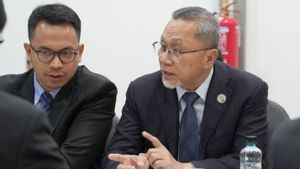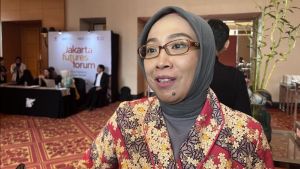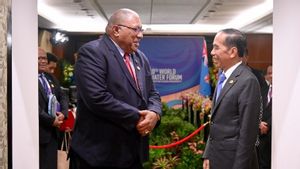
The engine lane in the non-oil and gas processing industry in the country was still running well at the beginning of the year.
This positive spot is reflected in the results of a survey by S&P Global which reported that Indonesia's manufacturing Purchasing Managers Index (PMI) in January 2023 was 51.3 or in an expansive stage, because it was above the level of 50.0.
Indonesia's manufacturing PMI in January 2023 increased compared to December 2022 which was at 50.9.
"This brilliant performance is in line with the results of the Industrial Trust Index (IKI) in January 2023 which we have previously released, by showing a position of 51.54 or increasing compared to IKI December 2022 which is at the level of 50.9," said Minister of Industry (Menperin) Agus Gumiwang Kartasasmita in Jakarta, quoted Thursday, February 2.
Minister of Industry Agus said the surge in Indonesia's manufacturing PMI was due to the increase in output rates and new demand.
"This means that industry players are still optimistic and respond positively to a number of policies and national economic conditions, so that they expand their activities for production in an effort to meet the needs of the domestic market and exports," he said.
Oleh karena itu, Agus mengapresiasi para pelaku industri manufaktur di Tanah Air yang semakin bergerak.
"Moreover, global pressure from an economic perspective has begun to subside, as the president said, it does not mean that a recession does not occur, it may not. So, we must remain optimistic, but must be vigilant," he said.
Agus stated that the downstream industry policy is the key to economic growth, so that the government consistently runs integrated industrialization from upstream to downstream.
"This will encourage the leap of developing countries into developed countries. So, in order to become developed countries, we must not be afraid to waste raw materials in our country," he said.
According to Agus, the positive impact of downstreaming has been proven in the mineral and coal sector, for example, the export value of nickel raw materials from Indonesia increased from IDR 17 trillion to IDR 450 trillion in 2022.
"This means that there is a very large increase in added value due to the effect of downstreaming," explained Agus.
The government will also gradually stop exports of raw materials that have the potential to be developed in Indonesia.
"After stopping exporting nickel, the government will also gradually stop exporting bauxite, then stop tin. Because, by producing the finished product, the added value can increase hundreds of times," said Agus.
In addition, the projected impact of downstream mining and oil and gas will increase the national GDP by 699 billion US dollars, as well as jobs that will be open to 8.8 million.
"This is a huge impact, opening up the widest possible employment opportunities. In addition, we are targeting GDP in 2045 at 9-11 trillion US dollars, but we must be consistent in carrying out this downstream. Don't be afraid and continue to control it," he added.
For your information, Indonesia's manufacturing PMI in January 2023 was able to surpass ASEAN manufacturing PMI (51.0), Malaysia (46.5), Vietnam (47.4), and Myanmar (49.6).
Then, South Korea (48.5), Japan (48.9), Taiwan (44.3), China (49.2), the European Union (48.8) and the United States (46.8).
The English, Chinese, Japanese, Arabic, and French versions are automatically generated by the AI. So there may still be inaccuracies in translating, please always see Indonesian as our main language. (system supported by DigitalSiber.id)












